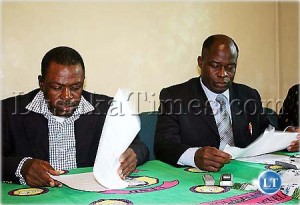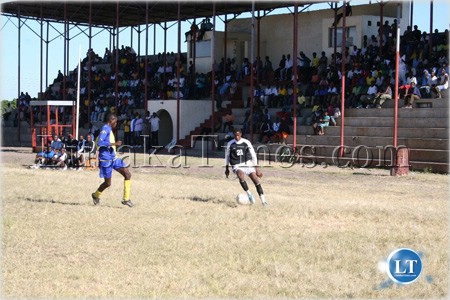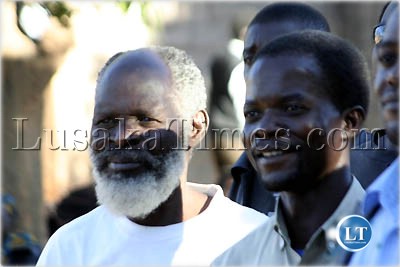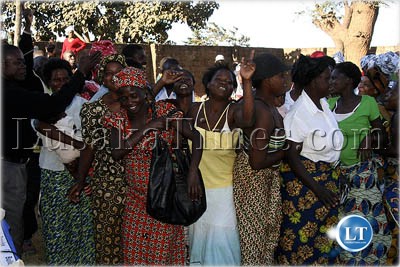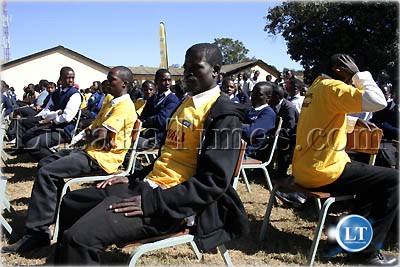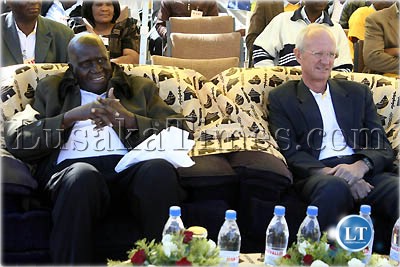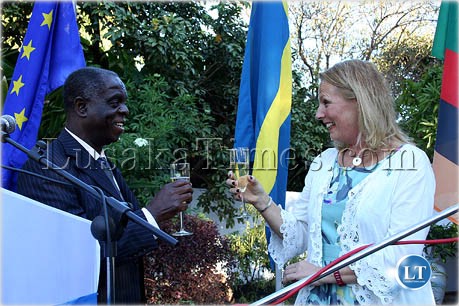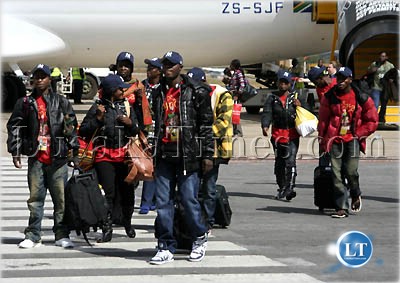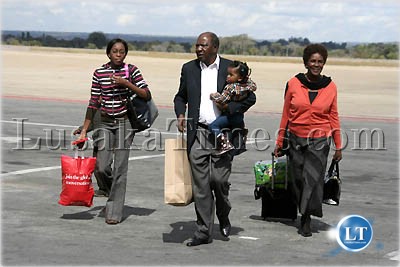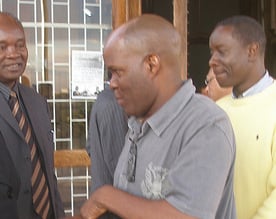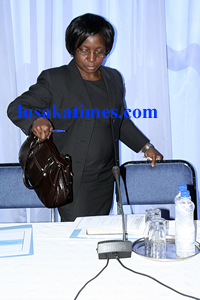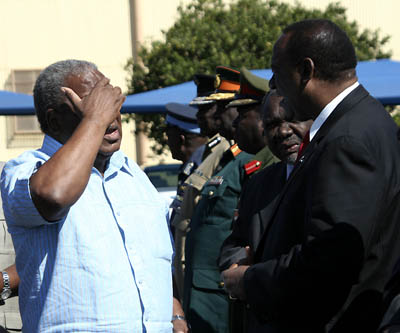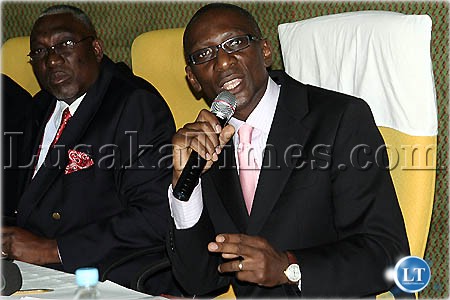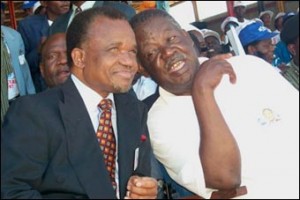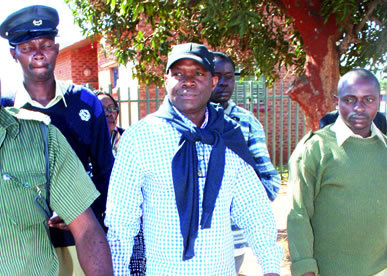 By Elias Munshya wa Munshya
By Elias Munshya wa Munshya
Since 1991, Fred M’membe and his The Post Newspapers have been great custodians of Zambia’s press freedom. In fact, many of the scores that Zambia has attained in the democratic dispensation have been due to the courage of M’membe and his The Post. M’membe’s great work has undoubtedly ruffled many feathers and earned him enemies in high places. Since 1991, he has been a thorn in the flesh of many governments. His activities have led him to perhaps be the most powerful Zambian outside of politics and government. He lives in his own world and commands great power, the power of the pen. But as the old adage goes, “absolute power corrupts absolutely”. This maxim is true at all levels of human endeavour. Absolute power in politics corrupts absolutely and this is true for lawyers, churches, popes as well as the press. In the case of The Post, their commitment to truth and press freedom created lots of power for its Chief Editor M’membe, and this power if left unchecked had the potential to corrupt him absolutely. A great preacher of justice could easily become an evangelist of injustice, and this is what happened to one Fred M’membe.
All of Zambia’s presidents proved to be on match to M’membe. Kaunda tried to finish him but he could not. In the dying days of his presidency, it was The Weekly Post, as it was then, that led a press campaign against Kaunda.
[pullquote] But as the old adage goes, “absolute power corrupts absolutely”. This maxim is true at all levels of human endeavour. Absolute power in politics corrupts absolutely and this is true for lawyers, churches, popes as well as the press.[/pullquote]
During Chiluba’s presidency, Chiluba attempted to incarcerate M’membe but the courts came to his defence and he was acquitted on several occasions. On one occasion, The Post published a comparison between the military capabilities of Zambia and Angola. This obviously displeased Chiluba who swiftly charged M’membe with espionage. The courts promptly dismissed the case and let M’membe free. Additionally, Speaker Nabulyato charged M’membe with a draconian “contempt of parliament.” However, to parliament’s shock the High Court reversed the sentence declaring that Parliament unconstitutionally usurped judicial powers. The Post continued on their crusade against Chiluba, to the extent of fabricating a story that he was born in the Congo. To buttress this argument, The Post found a Mr. Kafupi who claimed to be Chiluba’s father. One of the Post’s edition in fact, carried two pictures one of Kafupi and another of Chiluba, which showed striking resemblances between the two. In a civil case involving Kafupi, the Supreme Court refused to subject Chiluba to a DNA test. It was Chief Justice Ernest Sakala who dissented against the majority and saw no problems with subjecting Chiluba to a DNA test. In spite of this, Chiluba failed to cage M’membe.
When Mwanawasa came to power, it was The Post that published stories of Mwanawasa being a cabbage. As a lesson in humility, Mwanawasa countered that charge and claimed that he, in fact, was a piece of steak. The Post, Edith Nawakwi and Dipak Patel were charged with defamation. The cabbage case was discontinued, however. Furthermore, in one of its editorials, The Post reserved some strong words for Mwanawasa, calling some of his actions stupid. The police quickly pounced on M’membe and remanded him at Kabwata Police. He, however, stood his ground and called for the High Court to strike down the law that criminalized presidential defamation. M’membe claimed that a stupid president should not hide his stupidity behind the cloth of presidential defamation. This case never went to court; it was withdrawn by Mwanawasa. The might of presidential powers were no match to cage M’membe. He was acquiring for himself real power and clout.
However, in the latter presidency of Mwanawasa, The Post made peace with the government and they became Mwanawasa’s greatest defenders. Levy succumbed to them by sanctioning the Nchitoic prosecutions of Chiluba and his lieutenants. The Post’s newly found friendship in Mwanawasa is also demonstrated in that the Managing Editor of the Post, Amos Malupenga, inadvertently became Mwanawasa’s personal biographer. Malupenga’s book, “Levy Patrick Mwanawasa: an incentive for posterity” was in fact born out of The Post’s profile articles of Mwanawasa and his family. During the Nchitoic prosecutions of Fredrick Chiluba and others, The Post upset Magistrate Chinyama, who banned them from his courtroom. At least in that case, The Post escaped without a sentence.
The Post working on its reputation as an invincible defender of press freedom and anti-corruption crusader seized on Banda’s support for Chiluba and quickly cast Banda as a dictator. Banda complained bitterly against M’membe, ironically calling him “morbid and peculiar”. Banda then made a huge mistake; he caused the Police to charge Chansa Kabwela with a pornography case. As the Kabwela case went to court, it was felt by many Zambians that the case had no merit and Kabwela would easily be acquitted. Picking on this, Professor Muna Ndulo an eminent legal academician, wrote an article in The Post where he accurately argued that Kabwela’s case was a comedy of errors. He quoted various authorities of law, both statute and common law, and reached a conclusion that Kabwela had no case to answer for the charges that she was facing. Ndulo’s article appeared at the time of Kabwela’s trial. Magistrate Kafunda, as the trying magistrate had problems with Ndulo’s article in The Post and allowed contempt proceedings to begin in his court. However, Kafunda’s contempt proceedings were stayed by the High Court and Judge Wood, ruled that Kafunda had irregularly commenced contempt charges.
Instead of letting the issue die, the prosecution, decided to commence the contempt proceedings in a regular fashion and brought it before Magistrate Simusamba. Simusamba was perhaps the only match for M’membe who arrogantly argued that the article, though contemptible, was justifiable. [pullquote]
It looks like from this case, we have learnt that while one can get away with insulting the Head of State, the Courts of Law however, are more vicious and would not allow any amount of contempt. [/pullquote] While being cross examined by Lusaka divisional chief prosecutor Mumbuna, M’membe turned the trial into a high school debate contest, mocking Mumbuna as a failure who failed to cross examine him.
Magistrate Simusamba obviously had other ideas about the case. He stood in solidarity with the trying magistrate Kafunda, and found that The Post and M’membe were criminally liable and slapped a custodial sentence on them. It was necessary to send M’membe to jail so as to help him reform. It still remains to be seen however, how and if at all, this particular convict will reform only after four months.
Zambian politicians could not cage M’membe, Kaunda tried but failed. Chiluba also tried and failed. Mwanawasa tried and lamentably failed. Banda has tried too, but failed. It looks like from this case, we have learnt that while one can get away with insulting the Head of State, the Courts of Law however, are more vicious and would not allow any amount of contempt. Contempt is alright only if it is the president you are dealing with, but contempt for court takes you to jail regardless of who you are. And Magistrate Simusamba has taught us that lesson.
